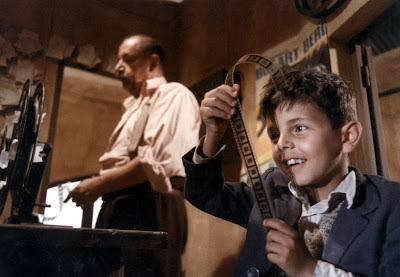Once again I find myself in the position of having a bunch of films around me, but deciding not to end the year on a review. I said last month (I think) that getting to 230 left was doable, and I've missed that goal by two--I stand at 871 films reviewed and 232 to go from The List. Not bad.
As it turns out, December was still a massive month for me, and one in which I did complete a lot of goals. I've now watched all of the films on The List longer than three hours (actually, everything longer than 170 minutes). I've watched the first 200 (actually, the first 204). I've also watched all of the new additions. Pretty good.
All told, I put up 307 List reviews this year, which is more than I thought I'd do. I put up 29 other reviews, too, for a grand total of 336 reviews. With other posts here and there...that's a lot of writing.
All of this means that, barring serious incident, I'll finish in 2013, and this blog will head in a new direction. Stay tuned, folks--there's interesting stuff ahead.


















































